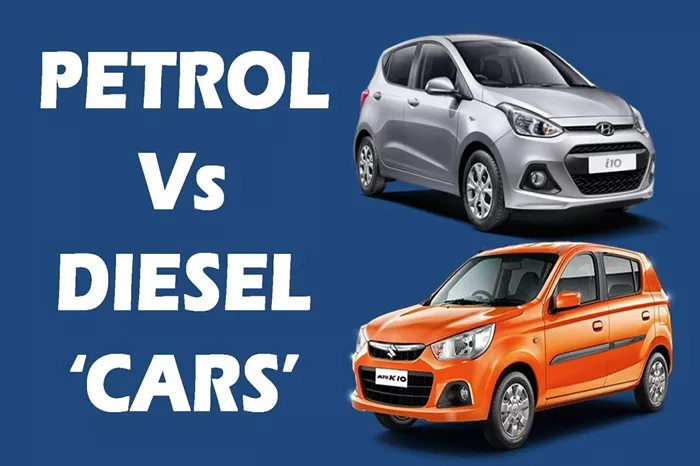The debate between diesel and petrol cars has persisted for decades, with each fuel type presenting distinct advantages and disadvantages. Understanding which type of vehicle lasts longer involves examining various factors, including engine design, fuel efficiency, maintenance requirements, and real-world performance. Diesel engines are often praised for their durability and longevity, while petrol engines are appreciated for their reliability and lower initial costs. This article aims to provide a comprehensive analysis of diesel and petrol cars, focusing specifically on their lifespans and the factors influencing them.
Diesel Cars vs Petrol: Which Lasts Longer?
1. Engine Design and Durability
Diesel Engines: Built for Longevity
Diesel engines are designed to endure higher compression ratios compared to petrol engines. This rugged construction is necessary because diesel fuel ignites under pressure rather than through a spark plug ignition system. The higher compression results in a more robust engine design, which can withstand greater wear and tear over time. As a result, many diesel vehicles have been known to achieve impressive mileage figures, with some models exceeding 900,000 miles on the original engine12.
Petrol Engines: Reliability Through Simplicity
While petrol engines may not have the same ruggedness as diesel engines, they are often perceived as more reliable. This perception stems from the fact that petrol engines typically have fewer complex components than their diesel counterparts. They do not require the same level of maintenance and tend to have longer intervals between servicing. Moreover, advancements in petrol engine technology have improved their durability significantly35.
2. Fuel Efficiency and Performance
Efficiency of Diesel Engines
One of the primary advantages of diesel engines is their fuel efficiency. Diesel fuel contains more energy per liter than petrol, leading to better mileage figures. Diesel engines can be up to 40% more efficient than petrol engines when comparing vehicles with similar power outputs24. This efficiency translates into lower running costs over time, particularly for drivers who frequently cover long distances.
Petrol Engines: Quick Acceleration and Power
On the other hand, petrol engines excel in terms of acceleration and power output. They can achieve higher revolutions per minute (RPM), allowing for quicker acceleration compared to diesel engines. This characteristic makes petrol vehicles more suitable for city driving where rapid acceleration is often required67. However, this advantage comes at the cost of lower fuel efficiency.
Maintenance Requirements
Maintenance Costs of Diesel Cars
While diesel engines are generally built for longevity, they often come with higher maintenance costs. Diesel vehicles require more frequent servicing due to their complex fuel systems and the need for specific maintenance practices to ensure optimal performance. For example, diesel engines tend to consume more oil than petrol engines, necessitating regular oil changes58. Additionally, components like turbochargers and intercoolers can add to maintenance expenses.
Lower Maintenance Needs for Petrol Cars
Conversely, petrol cars typically incur lower maintenance costs. Their simpler design means fewer components that require regular servicing or replacement. Petrol engines do not have turbochargers or intercoolers in most standard models, which reduces potential failure points and associated repair costs34. Furthermore, the intervals between oil changes tend to be longer than those for diesel vehicles.
Real-World Longevity
High-Mileage Diesel Vehicles
In practice, many high-mileage used cars on the market are diesel models. This trend contributes to the perception that diesel cars last longer than petrol ones35. The longevity of diesel vehicles is often attributed to their ability to sustain high mileage without significant issues. For instance, many fleet operators prefer diesel vehicles due to their durability and lower operating costs over time.
Petrol Cars: Comparable Lifespans with Proper Care
However, it is essential to note that with proper care and maintenance, petrol cars can also achieve impressive lifespans. Regular servicing and responsible driving habits play crucial roles in extending the life of any vehicle—diesel or petrol alike67. In some cases, well-maintained petrol engines can outlast poorly maintained diesel counterparts.
Environmental Considerations
Emissions from Diesel vs Petrol
Environmental impact is another critical factor in the diesel versus petrol debate. Diesel engines tend to produce less carbon dioxide (CO2) per kilometer driven compared to petrol engines due to their higher efficiency24. However, they also emit higher levels of nitrogen oxides (NOx) and particulates, which contribute to air pollution. As environmental regulations become stricter worldwide, this aspect may influence consumer preferences towards cleaner alternatives.
The Shift Towards Cleaner Fuels
The automotive industry is increasingly moving towards hybrid and electric vehicles as viable alternatives to both diesel and petrol options. These technologies promise reduced emissions and lower operating costs while maintaining performance standards48. As such, potential car buyers should consider future trends in automotive technology when deciding between diesel and petrol vehicles.
Conclusion
In conclusion, determining whether diesel or petrol cars last longer involves a multifaceted analysis of engine design, fuel efficiency, maintenance requirements, real-world performance, and environmental considerations. Diesel cars generally offer superior durability due to their robust construction and fuel efficiency advantages; however, they come with higher maintenance costs. Petrol cars provide reliable performance with lower initial costs but may not match the longevity of well-maintained diesel models.
Ultimately, the choice between a diesel or petrol vehicle should align with individual driving habits, budget considerations, and personal preferences regarding maintenance and environmental impact. Both types of vehicles can offer long service lives when properly cared for; thus, prospective buyers should weigh all factors before making a decision.
Related topic:
Why Is Ethanol-Free Petrol Better?

